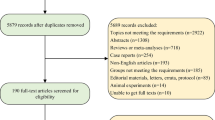Abstract
Background
Palliative chemotherapy is often recommended in the treatment of recurrent esophagogastric (EG) cancer with limited evidence of its benefit. This study aims to define the current practice and benefit of this treatment.
Methods
Retrospective analysis of patients who developed EG cancer recurrence between 1991 and 2006 following surgery with curative intent.
Results
There were 336 recurrences. Median time to disease recurrence was 13.4 months (range 1.3–118). Survival after recurrence ranged from 0–93.2 months (six patients are currently alive). A significant increase in the use of chemotherapy was observed rising from 10% prior to 1999 (n = 100) to 23% (n = 236) after 1999. The median survival for patients receiving chemotherapy (n = 64) was 10.6 months (range 1.5–75.7), patients undergoing nonchemotherapy palliative intervention (n = 142) median survival was 2.85 months (range 0–93.2), and for patients having no active intervention (n = 130), median survival was 1.3 months (range 0–16.2). Median duration of chemotherapy was 3.1 months (range 0.5–9.2). Median survival for these patients after chemotherapy treatment was 6.6 months (range 0.4–73.5). Twenty-eight patients (44%) experienced side effects of chemotherapy. Ten cases required treatment to be modified or stopped and two patients died during chemotherapy.
Conclusion
There has been a significant increase in the use of palliative chemotherapy for recurrent EG cancer. While survival appears improved, a substantial proportion of this time was spent receiving chemotherapy with many patients experiencing significant comorbidity. Further studies assessing both quality and quantity of life are required to fully evaluate the use of palliative chemotherapy and to identify patients most likely to benefit.


Similar content being viewed by others
Notes
This included radiotherapy, surgery, EG stenting/dilatation, biliary stenting/drainage, bronchial stenting, and pleurodesis either alone or in combination.
References
Wagner AD, Grothe W, Behl S, et al. Chemotherapy for advanced gastric cancer. Cochrane Database Syst Rev. 2005;(2), Art. No.:CD004064. doi:10.1002/14651858.CD004064.pub2.
Wilson D, Hiller L, Geh JI. Review of second-line chemotherapy for advanced gastric carcinoma. Clin Oncol. 2005;17:81–90. doi:10.1016/j.clon.2004.10.006.
Homs MYV, v.d. Gaast A, Siersema PD, Steyerberg EW, Kuipers EJ. Chemotherapy for metastatic carcinoma of the esophagus and gastro-esophageal junction. Cochrane Database Syst Rev. 2006;(4), Art. No.:CD004063. doi:10.1002/14651858.CD004063.pub2.
Homs MY, Kuipers EJ, Siersema PD. Palliative therapy. J Surg Oncol. 2005;92:246–56. doi:10.1002/jso.20366.
Mariette C, Balon JM, Piessen G, Fabre S, Seuningen IV, Triboulet JP. Pattern of recurrence following complete resection of esophageal carcinoma and factors predictive of recurrent disease. Cancer 2003;97:1616–23. doi:10.1002/cncr.11228.
Grunberger B, Raderer M, Schmidinger M, Hejna M. Palliative chemotherapy for recurrent and metastatic esophageal cancer. Anticancer Res. 2007;27(4C):2705–14.
Siewert JR, Stein HJ. Adenocarcinoma of the oesophago-gastric junction. Br J Surg. 1998;85:1457–9. doi:10.1046/j.1365-2168.1998.00940.x.
National Cancer Institute Cancer Therapy Evaluation Program, Common Toxicity Criteria Version 2.0 1990. http://ctep.cancer.gov/forms/CTCv20_4-30-992.pdf.
Allum WH, Griffin SM, Watson A, Colin-Jones D, on behalf of the Association of Upper Gastro-Intestinal Surgeons of Great Britain and Ireland, the British Society of Gastroenterology, and the British Association of Surgical Oncology. Guidelines for the management of oesophageal and gastric cancer. Gut 2002;50(Suppl V):v1–23.
Murad AM, Santiago FF, Petroianu A, Rocha PR, Rodrigues MA, Rausch M. Modified therapy with 5-fluorouracil, doxorubicin, and methotrexate in advanced gastric cancer. Cancer 1993;72:37–41. doi:10.1002/1097-0142(19930701)72:1<37::AID-CNCR2820720109>3.0.CO;2-P.
Pyrhonen S, Kuitunen T, Nyandoto P, Kouri M. Randomised comparison of fluorouracil, epidoxorubicin, and methotrexate (FEMTX) plus supportive care with supportive care alone in patients with non-resectable gastric cancer. Br J Cancer. 1995;71:587–91.
Glimelius B, Ekstrom K, Hoffman K, et al. Randomized comparison between chemotherapy plus best supportive care with best supportive care in advanced gastric cancer. Ann Oncol. 1997;8:163–8. doi:10.1023/A:1008243606668.
Blazeby JM, Farndon JR, Donovan J, Alderson D. A prospective longitudinal study examining the quality of life of patients with esophageal carcinoma. Cancer 2000;88:1781–7. doi:10.1002/(SICI)1097-0142(20000415)88:8<1781::AID-CNCR4>3.0.CO;2-G.
Trumper M, Ross PJ, Cunningham D, et al. Efficacy and tolerability of chemotherapy in elderly patients with advanced oesophago-gastric cancer: a pooled analysis of three clinical trials. Eur J Cancer. 2006;42:827–34. doi:10.1016/j.ejca.2005.08.044.
Yoo CH, Noh SH, Shin DW, Choi SH, Min JS. Recurrence following curative resection for gastric carcinoma. Br J Surg. 2000;87:236–42. doi:10.1046/j.1365–2168.2000.01360.x.
Maehara Y, Hasuda S, Koga T, Tokunaga E, Kakeji Y, Sugimachi K. Postoperative outcome and sites of recurrence in patients following curative resection of gastric cancer. Br J Surg. 2000;87:353–7. doi:10.1046/j.1365-2168.2000.01358.x.
Nakagawa S, Kanda T, Kosugi S, Ohashi M, Suzuki T, Hatakeyama K. Recurrence pattern of squamous cell carcinoma of the thoracic esophagus after extended radical esophagectomy with three-field lymphadenectomy. J Am Coll Surg. 2004;198:205–11. doi:10.1016/j.jamcollsurg.2003.10.005.
Chau I, Norman AR, Cunningham D, Waters JS, Oates J, Ross PJ. Multivariate prognostic factor analysis in locally advanced and metastatic esophago-gastric cancer—pooled analysis from three multicenter, randomized, controlled trials using individual patient data. J Clin Oncol. 2004;22:2395–403. doi:10.1200/JCO.2004.08.154.
Conflict of interest statement
All authors have seen and approved of the final manuscript and are fully conversant with its contents. None of the authors have any potential or actual personal, financial, or political interest to disclose or declare for this article. This paper has not been previously published and has been submitted exclusively to the Journal of Gastrointestinal Cancer.
Author information
Authors and Affiliations
Corresponding author
Rights and permissions
About this article
Cite this article
Amonkar, S.J., Irving, M., Wayman, J. et al. The Changing Use of Palliative Chemotherapy for Recurrent Esophagogastric Cancer: A Single Center Retrospective 15-Year Review. J Gastrointest Canc 39, 51–57 (2008). https://doi.org/10.1007/s12029-009-9051-5
Received:
Accepted:
Published:
Issue Date:
DOI: https://doi.org/10.1007/s12029-009-9051-5




